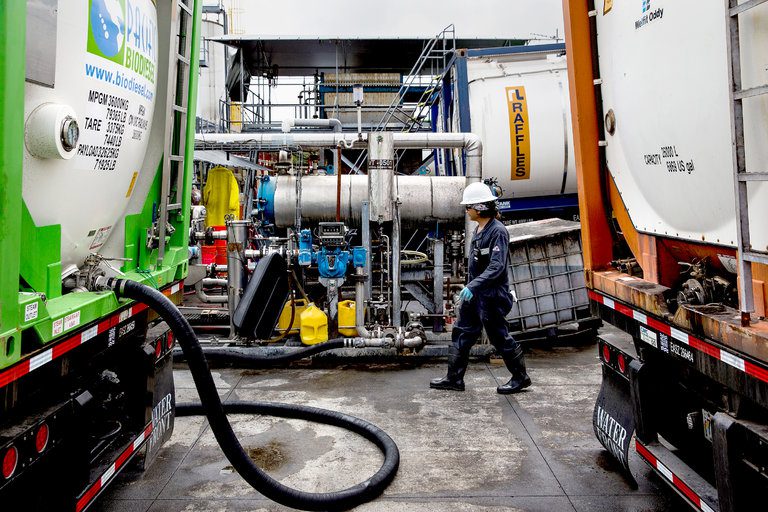 KEAAU, Hawaii — The trucks roll in and out of the plant at a business park nestled near papaya farms and a forest preserve on the Big Island here, an operation that transforms waste cooking oils, animal fats, fruit and seeds into biodiesel fuel, nearly 13,000 gallons a day.
KEAAU, Hawaii — The trucks roll in and out of the plant at a business park nestled near papaya farms and a forest preserve on the Big Island here, an operation that transforms waste cooking oils, animal fats, fruit and seeds into biodiesel fuel, nearly 13,000 gallons a day.
Owned by Pacific Biodiesel, an industry pioneer, the plant was designed with an eye toward conserving water and energy and avoiding environmental harm.
But after about $20 million and four years of operation, a central question about the plant, and the industry as a whole, has persisted: Do biofuels ultimately reduce carbon emissions?
“We’re worried that the efforts to ramp up our use of biofuels are actually doing a lot of damage and digging the climate hole deeper,” said Jonathan Lewis, a lawyer focused on climate change at the Clean Air Task Force.
Source: Biofuels Plant in Hawaii Is First to Be Certified as Sustainable – The New York Times

